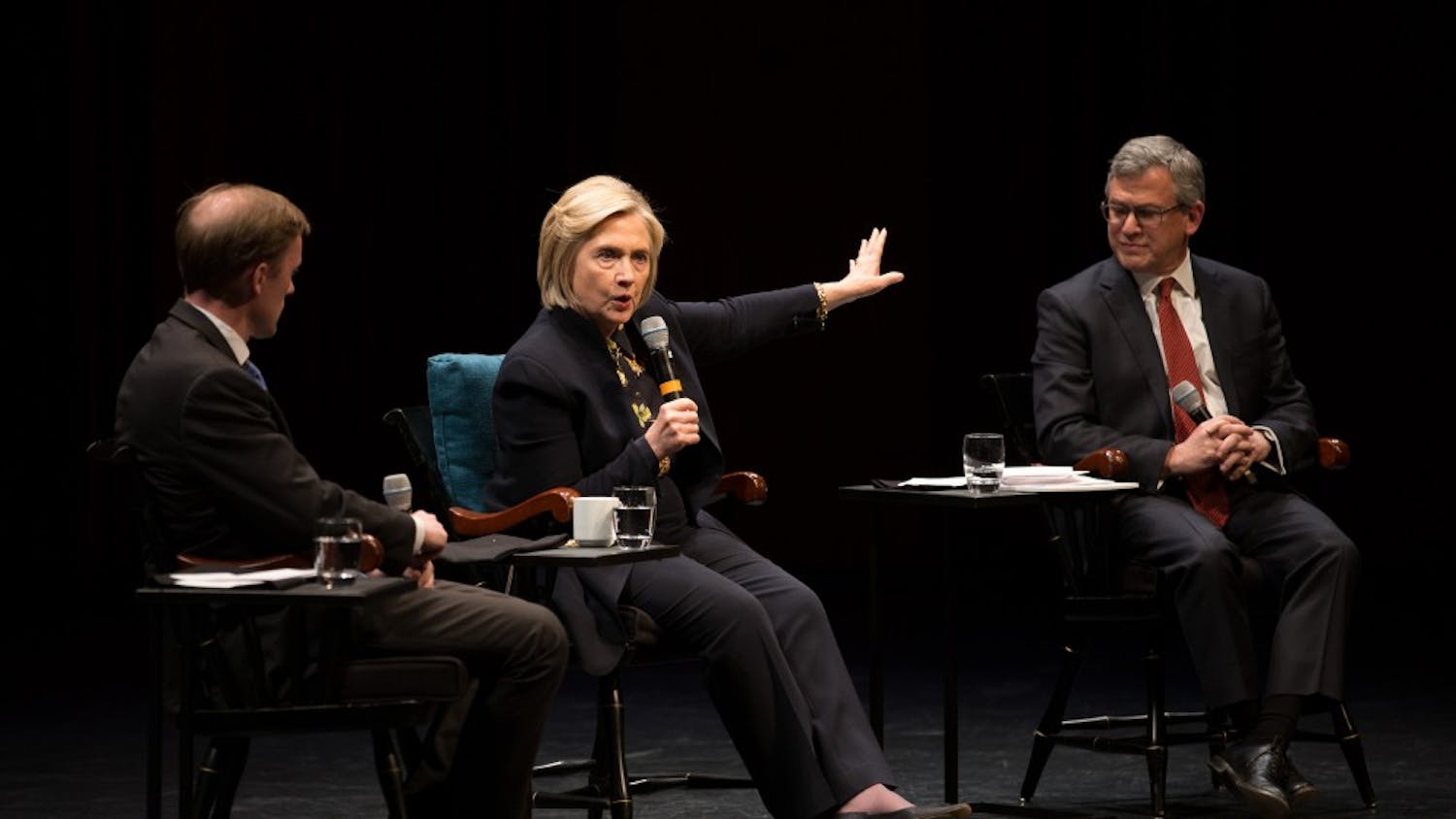After the disorganization of the Iowa Democratic caucuses last week — with the Associated Press announcing that they were unable to declare a winner — the eyes of the nation are now focused on the New Hampshire primary. Although New Hampshire Secretary of State Bill Gardner (D) has predicted that a record 420,000 people will show up to the polls today, many voters have said that they are beginning to lose faith in the political system. Ahead of today’s election, The Dartmouth took to the streets of Hanover to gauge people’s faith in the electoral system.
“I haven’t felt good about the system at-large since the year 2000,” said Hanover resident Jessie Papatolicas. “I especially don’t think that now, with all the cyberwarfare, is the right time to be introducing new technology. I think that we should try to master and utilize the systems that we have in place without changing things up technologically.”
Papatolicas was referring to an application developed by tech company Shadow Inc. that was used to tabulate the results of the Iowa Democratic caucus. The app delayed election results for days, causing mass confusion amid a tight race between former South Bend, IN mayor Pete Buttigieg and Sen. Bernie Sanders (I-VT). Papatolicas and others said that they also had concerns about the caucus system in general.
“The thing about Iowa is that it definitely decreased everyone’s faith in the system, and people are seizing on the uncertainty — especially the candidates, like Bernie claiming he won and Buttigieg claiming he won,” said Olivia Gresham ’22. “I think that makes people really wary going into the next few rounds [of the election], like if these parts are going to be a mess like the other. That seizing on doubt — it’s definitely made it more divided.”
The disorderly collection of data by the Iowa Democratic Party following the caucus has also sparked several conspiracy theories about the Democratic Party’s alleged attempts to manipulate the election in favor of certain candidates. President Donald Trump, his sons and multiple campaign staffers contributed to the promulgation of the theory by tweeting “#RiggedElection” and claiming that the results were being rigged against Sanders.
Gresham, who hails from New York but will be voting in New Hampshire, said she believes that Trump’s strategy mirrors the political climate of the last election.
“What happened in 2016 after Bernie lost the nomination was a lot of his supporters claimed conspiracy and a lot of Bernie voters didn’t turn out and vote for [former Secretary of State Hillary Clinton], and it’s among the reasons why the election went the way it did,” Gresham said.
Griffin Kozlow ’23, who will be voting in his home state of Michigan, said that the American political system is not inherently flawed, but that he doubted this belief during the last election.
“I haven’t lost faith in the election system of America,” he said. “I lost faith in it in 2016, but I don’t think my faith is lost in it for 2020 … even though the [2016] election was unprecedented and we’ve never seen anything like that, it doesn’t mean that every future election is going to be like that.”
Some voters, though, are less optimistic. Eric Sailer ’60 of Lyme said that he believes that the nation at-large should pay attention to the New Hampshire primaries “because we know what we’re doing,” but is not convinced that the American political system will decide on a candidate capable of beating Trump.
“We have to get rid of Trump — four more years of Trump and the United States will never be the same again,” he said.
However, Sailer added that there was “too much corruption and outside money” for someone like Sen. Amy Klobuchar (D-MN), Sailer’s candidate of choice, to win the election.
In contrast to other interviewees, Thomas Knight ’22 of Cooperstown, NY, said that the confusion surrounding the caucus results may have been a boon for candidates who may not have performed as well as they expected to. Because news of the results was delayed by what he called the “fog of war” coming out of Iowa, candidates who underperformed arrived in New Hampshire on more solid footing than they otherwise might have, Knight said.
Knight said that he is concerned about swing counties like Otsego County in New York, which he calls home. Otsego County — like many other purple counties across the country — voted for Barack Obama in 2008 and 2012, but voted for Trump in 2016.
“The Democrats [in Iowa] were attempting to construct a sort of a digital edge leading into 2020, especially with the machinery that Trump’s been building,” Knight said. “That being said … I believe that these counties and these states that flipped are what’s really going to decide 2020. A lot of the data backs that up, that essentially in the electoral calculus [Democrats] need to win them back.”
Although voters like Sailer and Papatolicas said they have lost confidence in the electoral system, not everyone shares that sentiment. Former Dartmouth College Democrats president Jennifer West ’20 said that she thinks people are just as eager to participate in the election now as they were before the Iowa caucuses debacle.
“I would question the premise that people are losing faith in the system,” West said. “I think that the Iowa caucus is very different from the New Hampshire primary, and I think that people are just as excited, and even more so now that they have the opportunity to get to vote.”

Lauren ('23) is news executive editor for The Dartmouth. She is from Bethesda, Maryland, and plans to major in government and minor in public policy.


